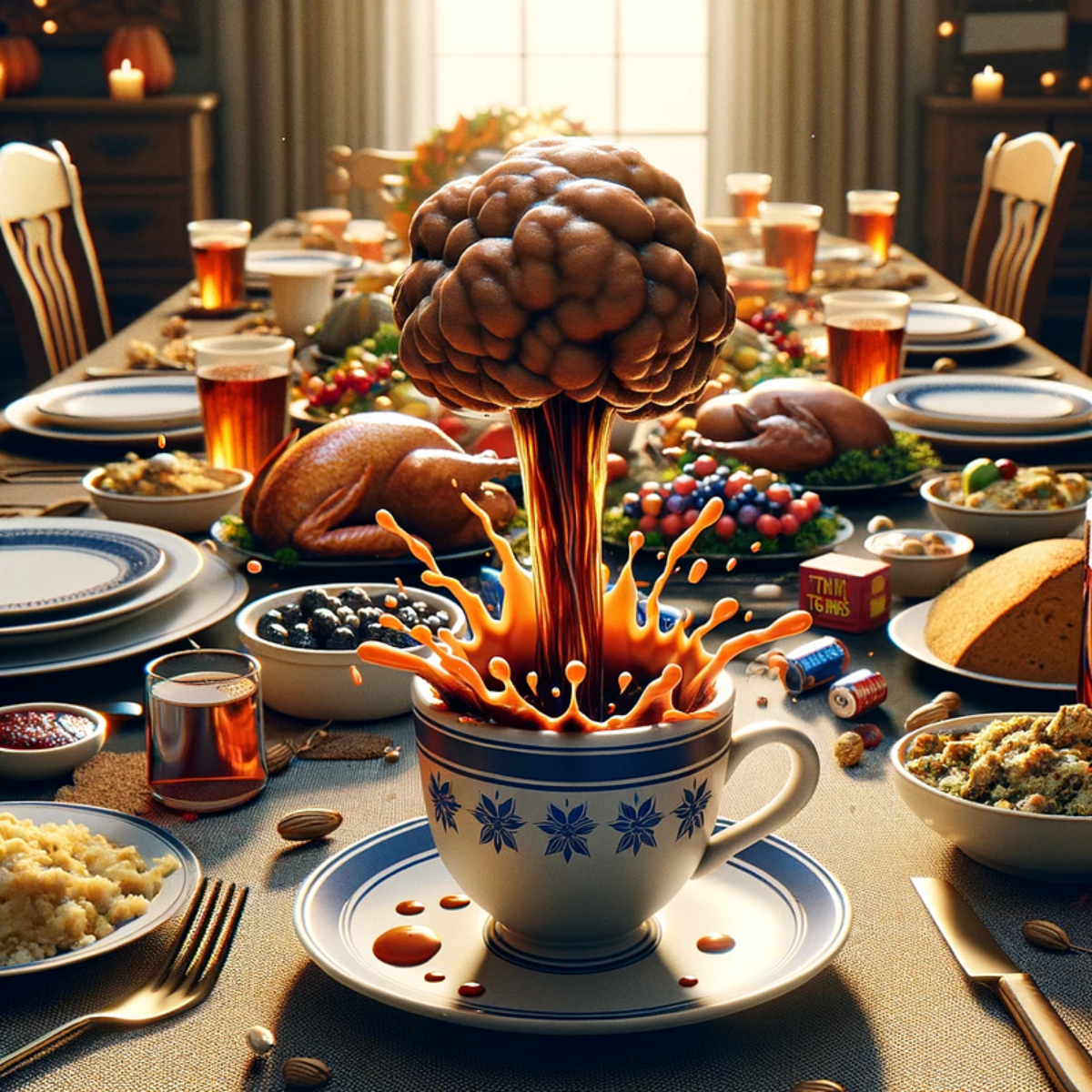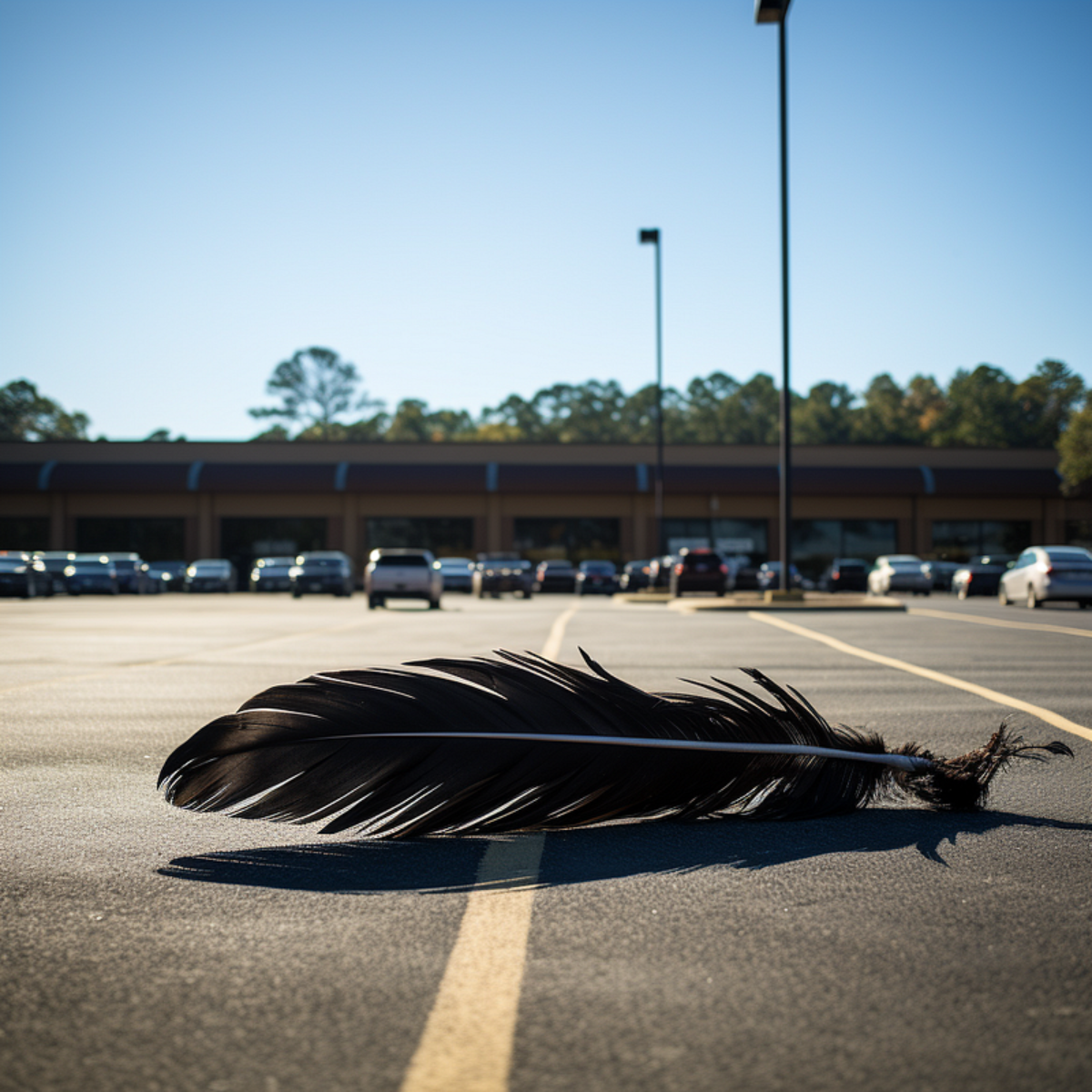
Escaping the Scapegoat’s Shadow: A Tale of Survival and Self-Discovery
Ever felt like the black sheep in your family? In my case, I was the neon, glow-in-the-dark sheep, standing out and taking the blame for everything, even things as absurd as global warming. And believe me, in a household where global warming is considered a hoax, that’s saying something.
A Childhood Shadowed by Fear
Imagine this: a young kid, books stuffed down their pants, bracing for impact. Sounds like a quirky scene from The Simpsons, right? But that was my reality, a reality filled with fear, confusion, and a constant sense of injustice.
Sometimes, revisiting the dark alleys of our past feels like voluntarily stepping into a haunted house — you know there are ghosts, but you go in anyway. For me, this journey is not just about confrontation but about integration. As the self-proclaimed black sheep of my family, I’ve navigated through a labyrinth of emotions and misunderstandings, only to discover the power of self-realization and healing.
This story is one of those nitty-gritty, not-so-pretty journeys into the depths of my soul. A tale of how I went from being the family’s ‘designated disaster’ to a self-empowering survivor.
Reflecting the Family’s Darkness
You may be asking, ‘What exactly is a black sheep?’ In family dynamics, it’s the scapegoat. It’s like being the human shield for every problem. You’re the easy target, the one who gets blamed for the family’s misfortunes, and, ironically, the one who often cares the most.
You become a living mirror of your family’s shadows, embodying every dysfunction and flaw. You’re like a magnet, attracting and absorbing the projections hurled upon you, a tangible representation of all that’s wrong within the family dynamics. This role can be a heavy cloak to wear, leading to a skewed sense of self and lingering emotional scars.
The Turning Point
The day I ‘snapped’ wasn’t just about rebellion; it was a turning point. It was the moment I realized that being good wasn’t good enough for them. I could’ve chosen to disappear and let my mind unravel into the abyss, but instead, I decided to rewrite my script. I decided to fight back. My path of rebellion wasn’t about causing trouble; it was about finding a voice in a world where I had been voiceless.
Tag, Your It
Looking back, my childhood was like living in a game of tag, where I was always ‘it.’ I remember being the recipient of numerous ‘ass whoopings,’ as my father liked to call them, for things I still can’t justify to this day. Yet, among these many instances, there’s one particular ‘ass whooping’ that lingers in my memory, its shadow haunting me to this day.

Picture a chilly morning, the kind where the tension inside the house surpasses even the frost clinging to the windows. Mind you, this was in Florida, where frost is as rare as a calm day in our household.
At the age of eleven, the world still sparkled before me with a child’s blend of wonder and naivety. But that morning, our kitchen transformed into a battlefield. My mother’s screams ricocheted off the walls, directed at my six-year-old sister over some minor misstep.
Typically, I was the target of her outbursts, but that day, I managed to stay under the radar. My mother’s voice, escalating to a fever pitch, was a familiar aftermath of the nights when my father would vanish into the darkness. He would reappear at dawn, his pockets as empty as his promises, ushering in a silent storm that loomed over our household like a foreboding cloud.
Roused by my mother’s frantic screaming at my little sister, my father stirred from his sleep. What followed is a moment that is etched into my memory: my father, a figure of uncontrolled rage, emerging in nothing but his underwear and leather belt in hand. His eyes were bloodshot, a terrifying harbinger of the storm to come. He zeroed in on me, the perennial target, his movements fueled by a misguided desire to restore some semblance of order.
What followed was not discipline; it was a tempest of fury. He wielded the belt with a ferocity that I had never seen before as a child, the metal buckle was an instrument of pain and fear. Each strike was a message, a cruel reminder of my designated role in this family drama. The belt’s buckle tore through my skin, leaving behind more than just physical scars. It was a brutal show, one where I was both the audience and the unwilling participant.
My younger sister, just six, witnessed this. Her eyes, wide with fear, might as well have been mirrors reflecting my own terror. It wasn’t just the physical pain; it was the realization that I was the chosen one — the scapegoat, the magnet for my father’s inexplicable rage. And my mother? A silent spectator, did nothing to stop the hurricane that tore through me, leaving me broken and bewildered.
The aftermath was almost as painful as the beating itself. The feeling of injustice was like a heavy stone in my stomach. I looked at my mother, my eyes flooded with tears, my voice a mix of anger and disbelief, and shouted at the top of my lungs, “I didn’t do anything!” But it was like screaming into a void. There was no acknowledgment, no comfort — just a heavy silence that hung in the air.
The next day was a surreal parade of normalcy. I wore shorts to school, exposing the brutal artwork that the belt had painted on my skin. But the world seemed blind or perhaps chose to be. No teacher questioned the obvious signs of abuse, no student dared to ask — a silent agreement to maintain the status quo.
Reflecting on this chapter of my life, I’m struck by its eerie parallel to Arthur Fleck’s ordeal in ‘Joker.’ Just like Arthur, my pain was raw and visible, yet it was met with a chilling indifference from the world around me. His cries for help drowned in societal neglect, echo my own experiences. This resonance with Arthur’s story terrifies me, serving as a stark reminder of the path I might have taken.
In the days following, I found my eleven-year-old self entrenched in a silent protest against my father and family. I vowed not to speak to my father again until he acknowledged and apologized for his actions. He attempted to bridge the gap, offering gestures like trips to Blockbuster or playing catch— cherished activities from my childhood.
Yet, I stood firm, building walls around myself, shutting out my family. After a week wrapped in solitude and silence, my father finally offered an apology. It was a rare moment, one of only a handful of apologies I ever received from him for his actions during my childhood. In a way, I recognize the significance of this acknowledgment, considering many in the role of the scapegoat never experienced even this small concession.
But the abuse didn’t end there. It was as though my father had realized I was slipping away, no longer willing to be a mere pawn for his projections. For an eleven-year-old, this stand was monumental. In that moment of resolve, amidst the chaos and pain, a part of me grew up far beyond my years.
That day marked the beginning of a new chapter — one where I chose defiance over submission. It wasn’t about being rebellious for the sake of rebellion; it was a desperate search for identity in a world that seemed determined to erase mine.

My Escape from the Scapegoat’s Shadow
Surviving as the family scapegoat isn’t just about resilience; it’s about making pivotal life choices that pave the way for healing. For me, the most crucial step was breaking free from my family at eighteen. This wasn’t just about physical distance; it was an act of self-preservation and a declaration of independence.
Leaving home was a decision fueled by a desire to protect my unborn child and forge a life with my husband, a choice that has held strong for over two decades. It was in this new environment, away from the turmoil of my family home, that I began to find myself. I had longed for escape as a teenager, grappling with feelings of self-hatred and despair, never feeling safe or valued at home.
In my journey, therapy would have been a valuable tool, but it wasn’t an option for me at the time. It took years for me to fully understand my role as the scapegoat and to recognize the roles played by my sisters and mother. This understanding has allowed me to cultivate empathy and maintain a necessary distance, protecting my mental health.
Even after achieving much in life, the old family dynamics persisted, reminding me that sometimes, distance is essential for healing. Creating a safe space for myself, contextualizing my experiences, and being able to articulate my story were vital steps in my healing process. Establishing boundaries has been crucial in safeguarding my mental health and well-being.
Today, I understand that healing often means stepping away to find safety and peace. It’s about constructing a life where you can reflect, grow, and flourish on your own terms. For anyone enduring a similar journey, remember this: healing may require distance, understanding, and firm boundaries — and that’s okay. It’s your story, your life, and your right to seek a safe haven for your heart and mind.
© 2023 Evelyn Ann Rose. All rights reserved.



